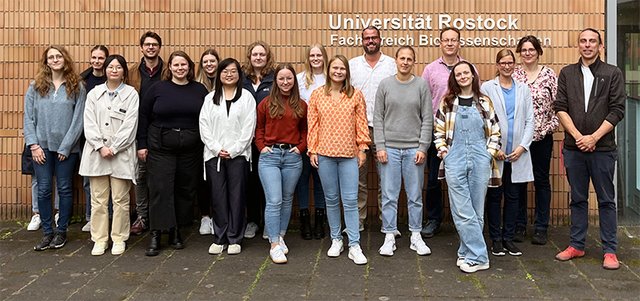The new generation of plant scientists from Munich, Kaiserslautern, Münster, Kiel, and Rostock, who participated in the summer school, benefited from lab courses and hands-on experience in analyzing photosynthesis, photosynthetic complexes, carbohydrates, targeted gene expression, and the analysis of antioxidative enzymes. During the courses, the students were trained in new techniques, including non-toxic RNA extraction, quantitative gene expression analysis, gas chromatography, photosynthetic gas exchange, and automated protein complex purification, which were previously unfamiliar to them. Through intensive discussion of the protocols and procedures, the participants deepened their understanding of the quantitative extraction and analysis of plant-derived biomolecules essential to cellular functions.
The practical work was accompanied by lectures on the mission of the NFDI initiative ‘dataPLANT’ FAIR digital objects and research data management, presented by Prof. Dr. Timo Mühlhaus (RPT University Kaiserslautern-Landau). Prof. Dr. Iris Finkemeier (University Münster) introduced the students to the field of plant proteomics, the theoretical principles and the application of quantitative mass spectrometric analysis for plant research.
The organizers are grateful to all supporters and the lively contributions of all participants, which will undoubtedly transform the gained experience in cellular plant biology into a valuable contribution to the field of science, providing solutions to modern life's most pressing societal questions and challenges, particularly those related to plant biology and crop performance.
----
In September 2025
Jun.-Prof. Dr. Jennifer Selinski, Christian-Albrechts-Universität zu Kiel (CAU), Plant Cell Biology Group, Kiel
Jun.-Prof. Dr. Andreas Richter, Universität Rostock, Institut für Biowissenschaften, Pflanzliche Stoffwechselphysiologie, Rostock

